Hexadecimal Addition and Subtraction
How to do hexadecimal addition and subtraction?
Here we will discuss about solving hexadecimal addition and subtraction.
Hexadecimal Addition:
The table for hexadecimal addition is as follows:
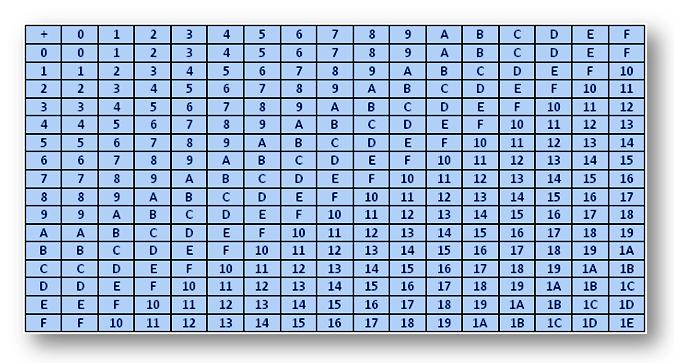
Addition of hexadecimal numbers can be easily carried with the help of the above table.
Following example illustrates the use of the table.
Solution:
We note from the table that
|
3 + E = 11 A + D = 17 17 + 1 (carry) = 18 B + 5 = 10 10 + 1 (carry) = 11 |
1 1 carry B A 3 5 D E 1 1 8 1 |
Hence the required sum is 1181 in hexadecimal.
__________________________________________________________
Hexadecimal Subtraction:
Subtraction of hexadecimal numbers can be accomplished by using complement method. Although it is not a very simple method computers use it very efficiently.
These above explanation will help you to understand the concept about hexadecimal addition and subtraction.
- Why Binary Numbers are Used
- Binary to Decimal Conversion
- Conversion of Numbers
- Hexa-decimal Number System
- Conversion of Binary Numbers to Octal or Hexa-decimal Numbers
- Octal and Hexa-Decimal Numbers
- Signed-magnitude Representation
- Radix Complement
- Diminished Radix Complement
- Arithmetic Operations of Binary Numbers
From Hexadecimal Addition and Subtraction to HOME PAGE
Didn't find what you were looking for? Or want to know more information about Math Only Math. Use this Google Search to find what you need.
Recent Articles
-
Addition of Decimals | How to Add Decimals? | Adding Decimals|Addition
Apr 24, 25 01:45 AM
We will discuss here about the addition of decimals. Decimals are added in the same way as we add ordinary numbers. We arrange the digits in columns and then add as required. Let us consider some -
Addition of Like Fractions | Examples | Videos | Worksheet | Fractions
Apr 23, 25 09:23 AM
To add two or more like fractions we simplify add their numerators. The denominator remains same. Thus, to add the fractions with the same denominator, we simply add their numerators and write the com… -
Subtraction | How to Subtract 2-digit, 3-digit, 4-digit Numbers?|Steps
Apr 23, 25 12:41 AM
The answer of a subtraction sum is called DIFFERENCE. How to subtract 2-digit numbers? Steps are shown to subtract 2-digit numbers. -
Subtraction of 4-Digit Numbers | Subtract Numbers with Four Digit
Apr 23, 25 12:38 AM
We will learn about the subtraction of 4-digit numbers (without borrowing and with borrowing). We know when one number is subtracted from another number the result obtained is called the difference. -
Subtraction with Regrouping | 4-Digit, 5-Digit and 6-Digit Subtraction
Apr 23, 25 12:34 AM
We will learn subtraction 4-digit, 5-digit and 6-digit numbers with regrouping. Subtraction of 4-digit numbers can be done in the same way as we do subtraction of smaller numbers. We first arrange the…


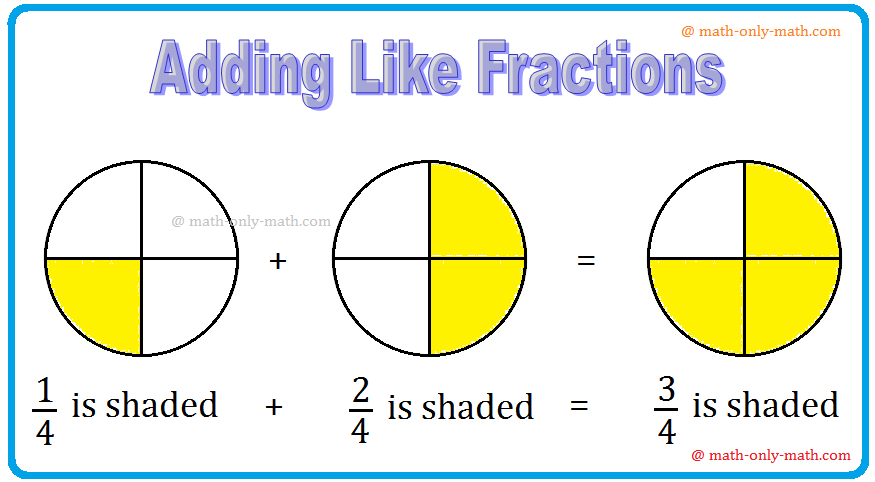
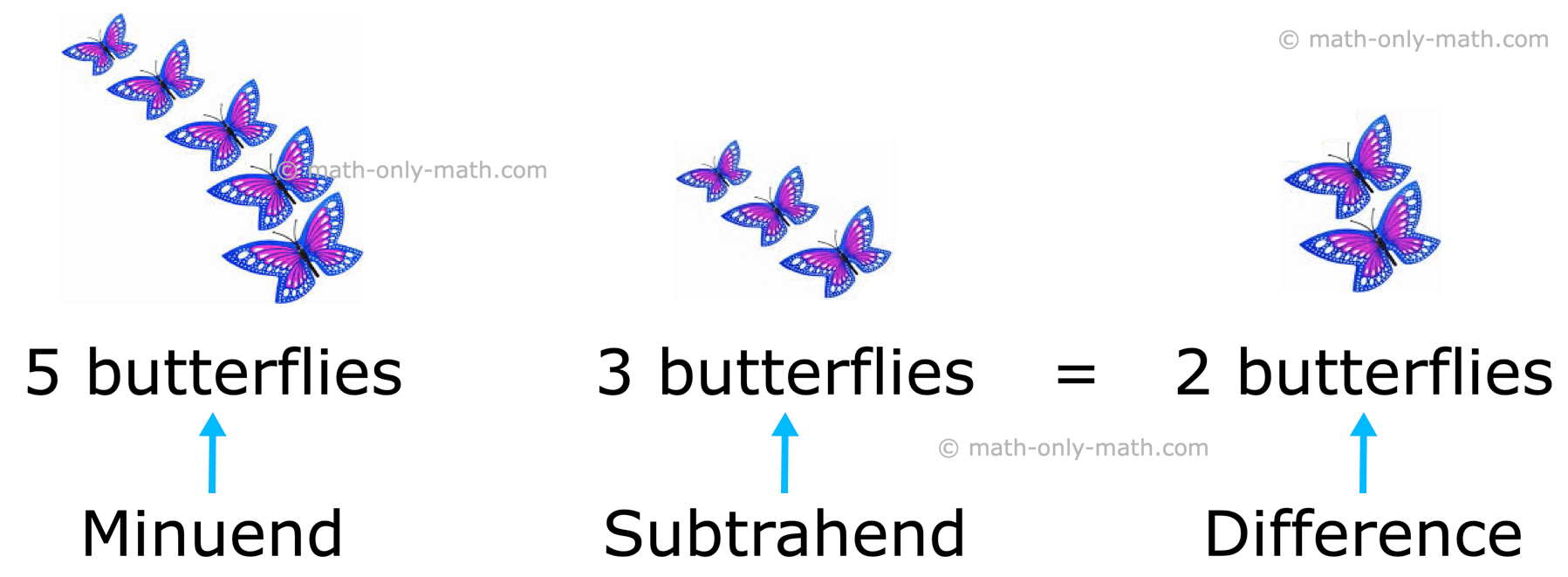
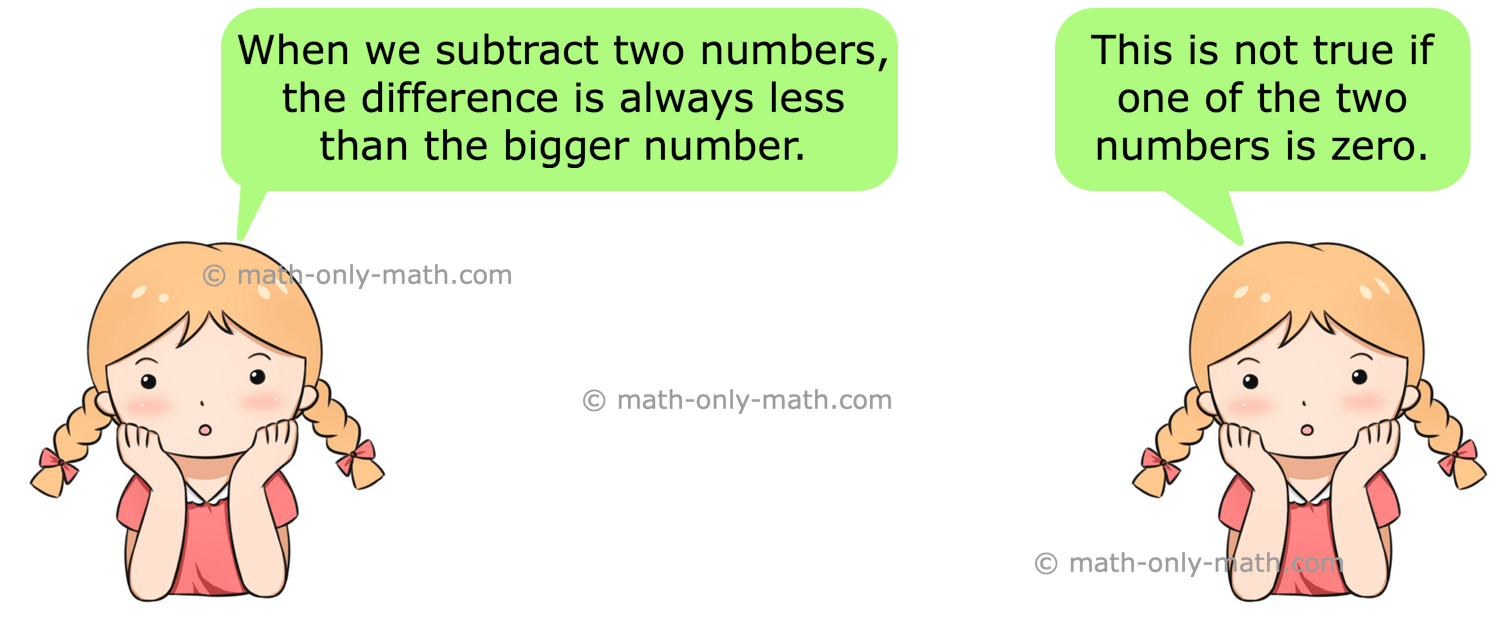
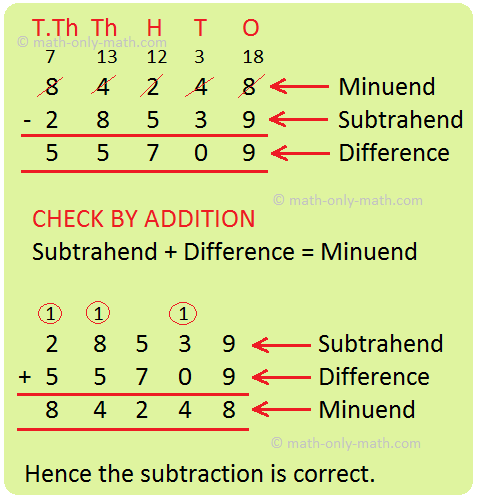
New! Comments
Have your say about what you just read! Leave me a comment in the box below. Ask a Question or Answer a Question.